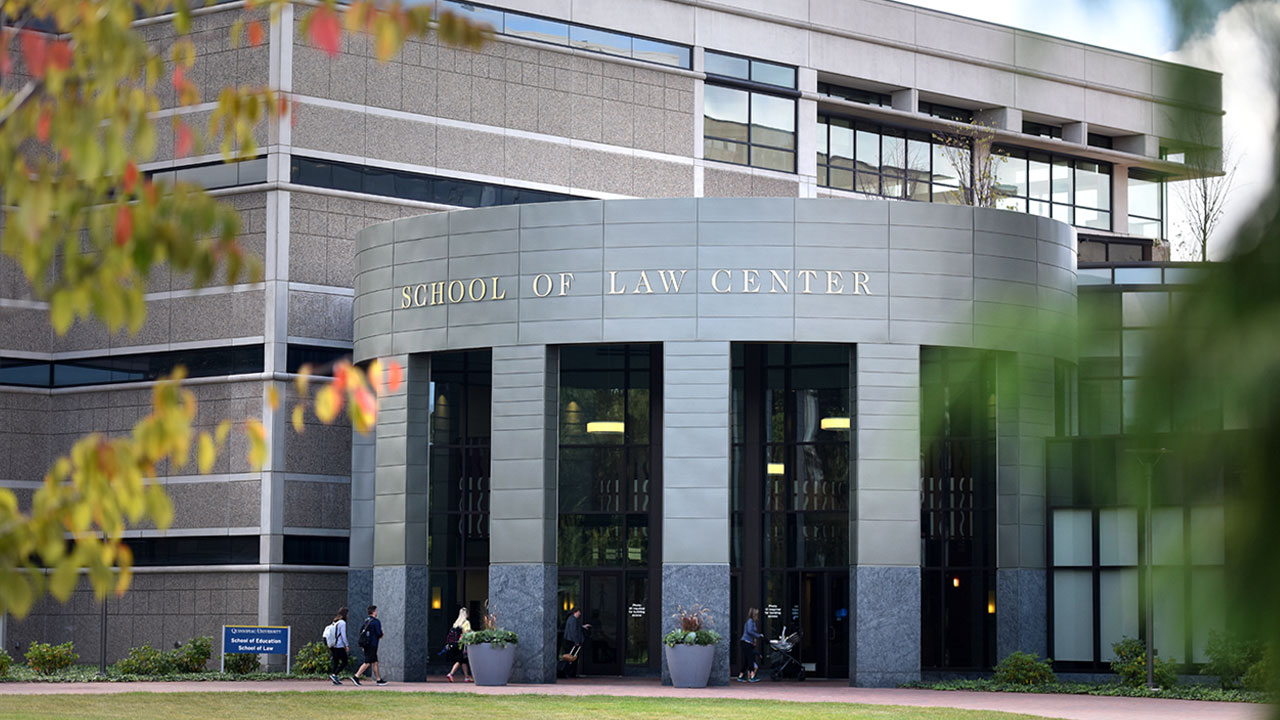The Quinnipiac University School of Law will present the virtual panel discussion, “Stories from the Underground: How Trafficking Survivors Experience the Criminal Justice System,” from noon to 2 p.m. on Friday, Feb. 19. This free program, co-sponsored by the Connecticut Bar Foundation, and Connecticut Bar Association, is part of the School of Law’s series, “Understanding Human Trafficking: Common-Sense Legal Reforms.”
The panel will include Sharifa Abdulla, survivor and member of The Legal Aid Society’s Exploitation Intervention Project in New York City, Ann-Marie Boulay, founder and CEO of the Underground, a grassroots, faith-based initiative dedicated to ending sex trafficking and sexual exploitation in Connecticut; State Rep. Jillian Gilchrest, chair of Connecticut’s Trafficking in Persons Council; and Theresa Leonard Rozyn, co-founder of the Underground, advocate, and survivor. Quinnipiac law student Cynthia Lill, executive chairwoman of the Quinnipiac Law’s Human Trafficking Prevention Project, will moderate.
Trafficking victims are arrested, prosecuted, and convicted for a range of crimes resulting from their trafficking, according to Lill.
“Using force, fraud, and coercion, traffickers compel their victims to commit a range of illegal acts and then threaten to expose them to criminal prosecution,” she said. “Traffickers teach victims to fear the criminal justice system and everyone in it — including their own attorneys. The trauma that follows survivors, even after they escape their traffickers, causes many to blame themselves and stay silent as their cases wind through the system.
Sheila Hayre, visiting associate professor of law and the Waring and Carmen Partridge Faculty Fellow, said many trafficking victims do not identify as victims, blame themselves, or are afraid to speak out and therefore remain silent as their case wind through the criminal justice system.
“As a result, actors in the justice system — including police, prosecutors, judges, and even defense attorneys — remain unaware of information that should factor into decisions to press charges, prosecute or defend a case, and convict and sentence,” she said. “In the absence of critical evidence about their victimization and its impact on their culpability in the crime, many trafficking victims are convicted. Years after they escape their traffickers, their criminal records haunt them, limiting access to employment, housing, education, and other aspects of civic life.”
Register here. For more information, contact Lill at [email protected].
